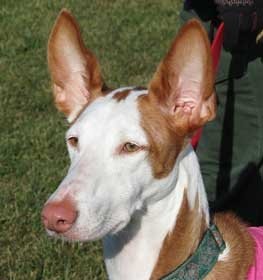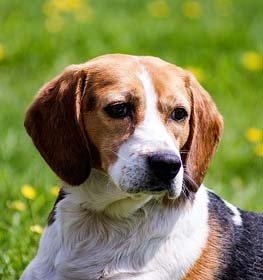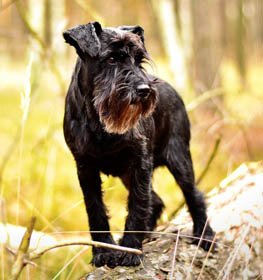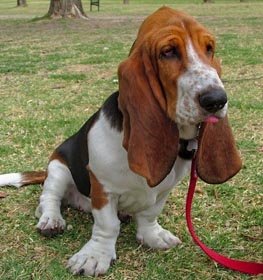Ibizan Hound Information & Dog Breed Facts
Collection of all the general dog breed info about Ibizan Hound so you can get to know the breed more.
| Group | Hunting Dogs |
|---|---|
| Popularity Rank | 165 |
| Reviews | 0 |
| User Ratings | |
|
Compare the Ibizan Hound With Other Dogs
Select at least one dog breed to make the comparsion. | |
 | |
| Origin | |
|
Common Names & Aliases
What other names is an Ibizan Hound known by? Discover all traditional, regional and informal names used for this breed. | Ibizan Warren HoundPodenco IbicencoCa Eivissenc |
|---|---|
|
Breed Classification
What type of dog breed is an Ibizan Hound? Learn about its genetic classification and breeding category. | Purebred |
|
Size Classification
What size category is an Ibizan Hound? Learn how big the Ibizan Hound breed typically grows. | Large |
|---|---|
|
Weight Statistics
How much does an Ibizan Hound weigh? Discover typical weight ranges for adult males and females of the Ibizan Hound breed. | Male: 44-53 pounds (20–24 kg), Female: 35-44 pounds (16-20 kg) |
|
Average Weight
What is the average weight of an Ibizan Hound? | Male: 48.5 pounds (22 kg), Female: 42 pounds (19 kg) |
|
Height
How tall is the Ibizan Hound? Ibizan Hound height: | 22-29 inches (56-74 cm) |
|
Average Height
What is the average height of an Ibizan Hound? | 25.5 inches (65 cm) |
|
Price Range
How much does an Ibizan Hound puppy cost? Find current market prices and factors affecting Ibizan Hound costs. | $800-$1200 If you choose to purchase the Ibizan Hound, you should know that the mentioned amount of money is an average of the collected data from breeders’ sites and puppy finder places. If you have a Ibizan Hound for sale, please advertise it on a reliable website to make sure the Ibizan Hound gets to a happy place. |
|---|---|
|
Availability
How easy is it to get a Ibizan Hound? How many Ibizan Hound are there in the world? | Frequent: The Ibizan Hound is easier than average to get. Maybe there is some risk of overbreeding, as it is a popular breed. Due to its popularity, inbreeding may occur. A new study shows that inbreeding contributes to the incidence of disease and health problems. So be careful and seek the help of an experienced person or a professional, in making your decision. |
|
Intelligence Rating
How intelligent is an Ibizan Hound? Discover the Ibizan Hound's intelligence ranking and learning capabilities. | Average: It takes patience to teach this breed any tricks or commands, but the effort is worth it. They understand and remember new commands after an average of 25-40 repetitions.
The Ibizan Hound ranks average in the intelligence ranking of dogs. |
|---|---|
|
Training Difficulty
How easy is it to train an Ibizan Hound? Learn about the Ibizan Hound's trainability and response to training methods. | Ibizan Hound dogs are easy to train. They find out the association between commands and actions quite quickly. |
|
Watchdog Rating
How good is an Ibizan Hound as a watchdog? Learn about the Ibizan Hound's alertness and guarding instincts. | Ibizan Hound dogs are average watchdogs. If they sense something different, they will alert you, but observation isn't considered their main job.
|
|
Territorial Protection
Is an Ibizan Hound protective of its territory? Learn about the Ibizan Hound's guarding instincts and behavior. | Ibizan Hound dogs are average defenders. Some dogs are very protective of their territory, while others easily let a stranger to trespass. This breed is not sure to defend its territory in every situation. |
|
Personality Traits
What personality does an Ibizan Hound have? Learn about characteristic Ibizan Hound temperament and behavior traits. | ActiveStubbornIndependentClownishIntelligentEngaging |
|---|---|
|
Sensitivity Level
How sensitive are they? Ibizan Hound sensitivity: | They are a little bit more sensitive than other dog breeds. Soft punishment affects them emotionally. Ibizan Hound dogs don't tolerate irregular daily routines, noisy households, and frequent guest visits really well.
They are receptive to their owner's emotions and make wonderful family companions. |
|
Affection Level
How affectionate are they? Is an Ibizan Hound a good family dog? | High: Ibizan Hound dogs are genuinely loyal, soft and gentle, loving, and affectionate dogs toward their handlers. They enjoy quality time with their owners despite the activity and are considered great therapy dogs for those in need. This breed responds strongly to their handler's emotions because they bond closely. Their happiness is your happiness. |
|
Social Needs
How much social interaction does the Ibizan Warren Hound need? Ibizan Hound social needs: | Ibizan Hound dogs need for social interaction is average. This breed likes being around people or other animals, but they don't mind being left alone for a few hours either. |
|
Impulse to Wander or Roam
How likely is the Ibizan Hound to run away? Does this breed explore or wander a lot? Does Ibizan Hound roam? | Ibizan Hound dogs have high wanderlust potential, which means that this breed has a strong desire for exploring the world. Safer to walk them on a leash unless you teach them how to get back to you on command. This breed is also able to cause damage to your fence. |
|
Prey Drive
Do this canine have a strong prey drive? Does Ibizan Hound have high prey drive? | Ibizan Hound dogs have a high impulse to chase and catch something. Cats or any other small animals are in danger. It's a natural instinct, doesn't necessarily mean that Ibizan Hound dogs are aggressive. Better to keep this breed on a leash. |
|
Barking Frequency
Does an Ibizan Hound bark a lot? Learn about typical Ibizan Hound vocalization patterns and triggers. | Average: The Ibizan Hound barks occasionally. They can change their barks depending on their emotional level and what they're trying to say. Different barks could mean the same and the same barks could have different meanings.
Top reasons for barking: protection, alarm, fear, boredom, attention-seeking, greeting, separation anxiety, compulsive barking. |
|---|---|
|
Playful Nature
How playful is an Ibizan Hound? Understand the typical play drive and energy level of the Ibizan Hound breed. | Average: Ibizan Hounds, like any other dog breed, like playing. Sometimes they bark in excitement for playing, but they are not the most playful dog breed. |
|
Apartment Adaptability
Can an Ibizan Hound live in an apartment? Learn about the Ibizan Hound's suitability for apartment living. | Not an apartment-friendly dog the Ibizan Hound breed. If you don't have a garden, think carefully about your decision, keeping Ibizan Hound indoors can cause a lot of problems. |
|
Lifestyle Adaptability
How adaptable is an Ibizan Hound to lifestyle changes? Learn about the Ibizan Hound's flexibility to new situations. | Ibizan Hound dogs adapt well to lifestyle changes and different living environments. They don't mind moving from one place to another with their owner. |
|---|---|
|
Alone Time Tolerance
Can an Ibizan Hound be left alone? Learn about the Ibizan Hound's tolerance to solitude. | Just like every puppy, they are prone to panic, cry, bark, whine when they left alone by their owner. With proper socialization and quality time with the dog can solve this problem. |
|
Bite Risk Assessment
What is an Ibizan Hound biting potential? Learn about the Ibizan Hound's bite risk factors. | Low 🔽 The Ibizan Hound has a low chance of biting somebody. Top reasons for dog bite: protection, pain, excitement, herding instinct, being provoked. (Data based on the available online bite statistics.) |
|---|---|
|
Mouthing Tendency
Is an Ibizan Hound mouthy? Learn about the Ibizan Hound's tendency to use mouth during play. | Ibizan Hound dogs have an average tendency to nip, chew, playbite, or herd people. It's a common habit during puppyhood, not aggressive behavior. These "bites" don't hurt, but Ibizan Hound dogs need to be taught a good attitude. |
|
Bite Strength Rating
How strong is an Ibizan Hound bite? Learn about the Ibizan Hound's bite force measured in PSI. | Between 200 and 400 PSI ⏺ Ibizan Hound bite force: Ordinary. Bite force Ibizan Hound measurements typically fall within the range of 200 to 400 PSI. The bite force of an Ibizan Hound is considered ordinary when compared to other dog breeds, but it is still quite powerful. This Ibizan Hound bite force PSI can cause bite wounds. Ibizan Hound bite PSI is not something that should be feared if the dog is well-trained and managed. To avoid any issues, it's essential to learn how to train an Ibizan Hound puppy not to bite from an early age.
The Ibizan Hound, and many others, have a fearsome presence because they have significant jaw strength, so it is important not to anger the dog and have it around strangers until it is fully trained. However, they are usually quite calm and good companions, they work well in families and are easy to care for. In conclusion, while the Ibizan Hound bite force is certainly an interesting aspect of the breed, it is important not to let it overshadow the many other reasons why these dogs are so loved and respected. With proper training and socialization, an Ibizan Hound can be a loyal and protective companion for your family. |
|
Average Lifespan
How long does an Ibizan Hound live? Learn about the typical lifespan of the Ibizan Hound breed. | 12-14 years The average lifespan of Ibizan Hound: 13 years |
|---|---|
|
Climate Tolerance
How well does an Ibizan Hound handle different weather? Learn about the Ibizan Hound's climate adaptability. | Prefers warm weather Dogs that prefer warm weather conditions are typically breeds that were originally bred in warmer climates. |
|
Health Concerns
What health issues are common in an Ibizan Hound? Discover typical conditions affecting the Ibizan Hound breed. | The Ibizan Hound is a healthy breed, but there are certain health issues that you should check with your vet regularly. |
|
Vet Care Frequency
How often does an Ibizan Hound need vet visits? Learn about the Ibizan Hound's veterinary care requirements. | Average The Ibizan Hound should have a complete physical check-up at least once per year. If your dog shows any symptoms, call your veterinarian. |
|
Health Problems
What genetic/health problems does the Ibizan Hound breed have? What are the health issues and concerns of the Ibizan Hound breed? Most common health risks of Ibizan Hound: | Hip Dysplasia AllergiesEye ProblemsBloatDeafnessSeizuresThyroid Disorder |
|
Energy Rating
How energetic is an Ibizan Hound? Understand daily activity needs of the Ibizan Hound breed. | Ibizan Hound dogs are high-energy dogs. An active lifestyle makes them happy. |
|---|---|
|
Activity Requirement / Exercise Need
How much exercise does an Ibizan Hound need? How much exercise do Ibizan Hound dogs require per day?
Do Ibizan Hound dogs need a lot of exercises? | Ibizan Hound dogs need quite a lot of exercise. Daily walks should be on schedule. If you live an active life, this breed can be a good choice for you. |
|
Sleeping Need
How much sleep does the Ibizan Hound breed need? | Ibizan Hound dogs don't need too much sleep. They are energetic and desire to live active life. If you think naps are overrated, this breed can be the best choice for you. |
|
Obesity Tendency
Is an Ibizan Hound prone to weight gain? Learn about the Ibizan Hound's obesity risks. | Low: The Ibizan Hound has good luck with genetics. This breed doesn't need to worry about obesity. To make your dog happy and fit, feed him with quality dry dog food and live an active life together. Try to find the happy medium between exercise and feeding.
If you notice any weight gain, consult your veterinarian and make a diet plan. Reduce unhealthy food and snacks, and measure the Ibizan Hound weight regularly. |
|---|---|
|
Food Consumption
How much food does an Ibizan Hound need daily? Learn about the Ibizan Hound's feeding requirements. | 2 to 3 cups of a high-quality dog food a day. |
|
Allergy Friendliness
Is an Ibizan Hound hypoallergenic? Learn about the Ibizan Hound's suitability for allergy sufferers. | No Ibizan Hound dogs don't do well with allergy sufferers by causing allergic reactions. Some dog breeds are even considered to higher possibility of an allergic response. Coat type isn't necessarily relevant, because most people are allergic to dander (flakes on the dog's skin) or saliva, not actually to dog hair. |
|---|---|
|
Coat Colors
What colors does an Ibizan Hound come in? Discover all possible Ibizan Hound color variations. | Red White |
|
Grooming Requirements
How much grooming does an Ibizan Hound need? Learn about Ibizan Hound coat maintenance requirements. | Average: The Ibizan Hound requires average grooming effort. Cutting the dog's hair by a professional groomer isn't essential. Brushing the dog's coat is useful to reduce shedding. Ears and eyes should be cleaned regularly to avoid infections. Don't skip the seasonal flea treatment too. Dog nail trimming and dog bath can be helpful sometimes. Check the local pet store for dog grooming supplies and find the best dog shampoo to keep its coat healthy and give your dog a pleasant experience of a dog bath. If you don't have the time, skill, or money to take care of your Ibizan Hound, search for a dog groomer or clipping service in your area and book an appointment. Maybe you're lucky to have a dog boarding service that includes grooming or walk-in dog bath places nearby. |
|
Drooling Tendency
Does an Ibizan Hound drool a lot? Learn about the Ibizan Hound's drooling habits. | The Ibizan Hound is a perfect example of a very low drooling tendency. If you're disgusted by slobber spots on your clothes, the Ibizan Hound could be a perfect choice for you. Drooling is the unintentional saliva flowing outside of the mouth. It can be completely normal or a sign of a health problem. Certain dog breeds drool minimum compared to others, just like the Ibizan Hound.
If you notice any change in your dog's drooling habit, you should contact a vet as soon as possible. |
|
Stinkiness Rating
Does an Ibizan Hound smell bad? Learn about the Ibizan Hound's natural odor levels. | Medium ⏺ The Ibizan Hound has an average chance of bad smell. Top reasons for dog stinkiness: infection of bad tooth/ear/skin folds, gas attacks. |
|
Coat Characteristics
What type of coat does an Ibizan Hound have? Learn about the Ibizan Hound's fur characteristics. | WirySmooth |
|
Bathing Needs
How often does an Ibizan Hound need baths? Learn about the Ibizan Hound's bathing requirements. | 4-6 weeks Average. Experts recommended at least every 4-6 weeks for this family pup. According to a study, 56% of pet parents don’t bathe their dogs as frequently as they should, and 60% use the sniff test when deciding when it’s bath time.
Bathing your dog is beneficial to them in more ways than just one. It’s also a good time to look for unusual scratches, bumps, fleas, and other irregularities. When their hair is wet and flat against their body, these details are more visible. |
|
Shedding Level
How much do Ibizan Hound dogs shed? How to control, reduce and prevent the shedding of the Ibizan Warren Hound? Do Ibizan Hound dogs shed a lot? | Ibizan Hound dogs shed moderately. It's a natural process of the hair growth cycle. Regular brushing reduces the amount of hair that sheds. It mostly depends on their health status and breed type. |
|
Child Compatibility
Is an Ibizan Hound good with children? Learn about the Ibizan Hound's behavior around kids of different ages. | Ibizan Hound dogs are kid-friendly dogs. This breed is a good choice if you have children. |
|---|---|
|
Pet Compatibility
How well does an Ibizan Hound get along with other pets? Discover the Ibizan Hound's compatibility with other animals. | Ibizan Hound dogs usually don’t get on well with other pets. |
|
Stranger Friendly
Are they aggressive or friendly towards/with strangers? Ibizan Hound temperament with other people: | Ibizan Hound dogs are not the most stranger-friendly dogs. |
|
Cat Friendly
How well do Ibizan Hound dogs get along with cats? Are they good with kittens? What is this fido's temperament with cats? Can they be good with cats? Can the Ibizan Hound breed live with a cat? | Ibizan Hound dogs are not the most cat-friendly dogs. |
|
Dog Friendly
Is Ibizan Hound good with other dogs? Are they dog-friendly dogs? How well do Ibizan Hound dogs get along with other dogs? | Ibizan Hound dogs are average friendly towards other dogs. |
|
Good For First Time Owners
Is Ibizan Hound breed good for first-time owners? Do they make a good dog for novice owners? Is Ibizan Hound breed suitable for first-time owners? | Yes Ibizan Hound dogs are good for novice owners, due to their easy-going personality. |
|
Office Friendly
Are Ibizan Hound dogs good office canines? Do Ibizan Hound dogs make good office-friendly pets? Can they be office dogs? | No Ibizan Hound is not the best dog breed for office environment. |
|
Senior Citizens Friendly
Are they senior citizens friendly dogs? How well do Ibizan Hound dogs get along with the elderly people? What is the Ibizan Warren Hound temperament with senior people? Are Ibizan Hound dogs good for elderly owners? | Ibizan Hounds are usually recommended for elderly people. |
|
Service Dog Capability
Can an Ibizan Hound be a service dog? Learn about the Ibizan Hound's service work potential. | Not really This breed generally not used as a service dog. A service dog is a term used in the USA to refer to any type of assistance dog specifically trained to help people who have disabilities, such as visual impairment, hearing impairments, mental disorders, seizures, mobility impairment, and diabetes. Service dogs are protected under the ADA (Americans with Disabilities Act).
Ibizan Hound is not the best breed for service purposes. |
|---|---|
|
Therapy Work Suitability
Is an Ibizan Hound good as a therapy dog? Learn about the Ibizan Hound's therapy work aptitude. | Not really This breed is generally not used as a therapy dog. A therapy dog is a dog that might be trained to provide affection, comfort, and love to people in hospitals, retirement homes, nursing homes, schools, hospices, disaster areas, and people with anxiety disorders or autism.
Ibizan Hound is not the best breed for therapeutic purposes. |
|
Scent Detection Ability
Is an Ibizan Hound good at detection work? Learn about the Ibizan Hound's scenting abilities. | Not really They are not typically employed for this type of work, but there may be exceptional cases. A detection dog or sniffer dog is a dog that is trained to use its senses (mostly its smell) to detect substances such as explosives, illegal drugs, wildlife scat, currency, blood, and contraband electronics such as illicit mobile phones.
Ibizan Hound is not the best breed for detection purposes. |
|
Search & Rescue Potential
Can an Ibizan Hound do search and rescue? Learn about the Ibizan Hound's SAR capabilities. | Not really This dog breed is not typically used as a search and rescue dog. The use of dogs in search and rescue (SAR) is a valuable component in wilderness tracking, natural disasters, mass casualty events, and locating missing people.
The Ibizan Hound is not the best breed for SAR purposes. |
|
Maritime Work Ability
Is an Ibizan Hound good on boats? Learn about the Ibizan Hound's maritime capabilities. | Not really Ibizan Hound breed usually doesn't like being on a boat. Boat dogs were typically bred for their strength, stamina, and water resistance, as they were often required to perform tasks such as pulling in fishing nets, and jumping into the water to retrieve ropes or lines, or helping to move cargo. Sailor dog is a type of dog that was bred to accompany sailors on their voyages. They were typically used for three purposes: as a working dog, a watchdog, and as a companion. A boat dog is a term used to describe a type of dog that was traditionally bred and used as a working dog on boats. |
|
Draft Work Capability
Can an Ibizan Hound pull carts? Learn about the Ibizan Hound's drafting abilities. | Not really A drafting dog or draft dog is a dog bred and used for cart pulling. Dogs bred for this work have strong builds and qualities that are needed, strength and determination.
Ibizan Hound is not the best breed for drafting purposes. |
|
Military Service Background
Was an Ibizan Hound used in military service? Learn about the Ibizan Hound's military history. | Not really In history, this breed was not really used for combat dog. |
|
Puppy Litter Size
How many puppies does an Ibizan Hound usually have? Learn about typical litter sizes. | 6-12 puppies |
|---|---|
|
Pregnancy Duration
How long is an Ibizan Hound pregnant? Learn about the Ibizan Hound's gestation period. | 60-64 days Reproductive cycle of the female Ibizan Hound: The first period called Proestrus lasts for about 9 days.
During this time the females start to attract males. You can notice by swelling vulva and bloody discharge. The second part is the Estrus when the female is receptive for the male. It lasts for about 3 to 11 days. The sign of the proestrus part is the soft and enlarged vulva. The discharge decreases and lightens in color. The third part is the Diestrus. Normally, it occurs around day 14. In this period the female’s discharge changes for vivid red and coming to its end. The vulva returns to average, and she will no longer permit mating. The fourth part called the Anestrus. The time frame between heat periods normally lasts about six months. |
|
Breeding Frequency
How often can an Ibizan Hound have puppies? Learn about safe breeding intervals. | Once a year. More frequent breeding is not healthy. It is very important not to buy a dog from a puppy mill, where the needs of the pups and their mothers are ignored. It's an inhumane high-volume dog breeding facility, where puppies born several times a year. |
|
AKC Classification
What AKC group is an Ibizan Hound in? Learn about the Ibizan Hound's AKC classification. | Recognized by the American Kennel Club in 1978 as a Hound breed. |
|---|---|
|
FCI Classification
What FCI group is an Ibizan Hound in? Learn about the Ibizan Hound's international classification. | Recognized by FCI in the Spitz and primitive types group, in the Primitive type - Hunting Dogs section. |
Ibizan Hound Pros and Cons
- Training Difficulty: Ibizan Hound dogs are easy to train.
- Drooling Tendency: The Ibizan Hound is a perfect example of a very low drooling tendency.
- Obesity Tendency: Low: The Ibizan Hound has good luck with genetics.
- Lifestyle Adaptability: Ibizan Hound dogs adapt well to lifestyle changes and different living environments.
- Child Compatibility: Ibizan Hound dogs are kid-friendly dogs.
- Senior Citizens Friendly: Ibizan Hounds are usually recommended for elderly people.
- Good For First Time Owners: Ibizan Hound dogs are good for novice owners, due to their easy-going personality.
- Allergy Friendliness: Ibizan Hound dogs don't do well with allergy sufferers by causing allergic reactions.
- Apartment Adaptability: Not an apartment-friendly dog the Ibizan Hound breed.
- Impulse to Wander or Roam: Ibizan Hound dogs have high wanderlust potential, which means that this breed has a strong desire for exploring the world.
- Cat Friendly: Ibizan Hound dogs are not the most cat-friendly dogs.
- Office Friendly: Ibizan Hound is not the best dog breed for office environment.
Ibizan Hound History
Introduction
The first impression of the Ibiza Hound is of a tall, aristocratic, sleek dog who is rather aloof but those who get to know the breed soon learn that they are generous with their affection, sensible, polite, and even playful. They are well known for being able to jump up 6 feet in the air, and they can reach speeds up to 40 miles per hour. Ibizan Hounds are also packed animals so they fit in with families just fine.
History
The Ibizan Hound’s origins are said to extend back at least 5000 years, making it one of the world’s oldest pure-bred canines. In Egyptian art, these dogs were frequently depicted. Tracing back to 3100 B.C., a concave dish, called the Golenischeff plate, was found at Nagada in upper Egypt, on which three leashed hounds with erect ears and tall lean bodies were portrayed.
Moreover, drawing of these ancient hounds, so strikingly similar to the Ibizan Hound, have been found in hieroglyphs and in the tombs of pharaohs dating back to 2650 B.C. Even the head of Anubis resembles that of the Ibizan. However, as their name reflects, the Ibizan Hound hails from the Mediterranean isle of Ibiza where the breed was traditionally used to hunt rabbits.
The mystery begins when the recorded history ends. How did a breed that looked as though it stepped out of an Egyptian tomb end up being discovered thousands of years later and thousands of miles away?
According to experts, it is possible that Phoenician traders may have brought these canines to Ibiza and the surrounding islands as early as 800 B.C. They were kept and bred for their capacity to hunt small creatures using their senses of sight, scent, and even hearing.
The tough conditions allowed little space for sentimentality, and those who were not physically fit were not maintained or bred. This definitely contributed to the breed’s hardiness today. The breed is known as Ca Eibisenc in its homeland.
Later
Over time, the Ibizan Hound became known on the European continent, first in Catalonia, Spain, where he was called Eivissencs, and in Provence, France, where he was called Charnique and was prized by poachers. However, his association with the clandestine activity of poaching eventually led him to be banned from France. In the 20th century, the Marquesa de Belgida of Barcelona, Spain, Doe Maria Dolores de Cotonera took a strong interest in the Ibizan Hound, which was then considered an indigenous Spanish breed.
She maintained a big kennel on Majorca, the largest of the Balearic Islands, where she bred high-quality Ibizan Hounds whom she promoted throughout the whole world. Furthermore, it was not until the 1950s that the breed was exported and began its new incarnation as a companion and show dog. The breed was introduced to the United States in 1956 by Colonel and Mrs. Consuelo Seone. Today, the Ibizan is a prized hunter, coursing dog, show dog, and companion animal all over the globe.
Recognition
The Ibizan Hound was recognized by the American Kennel Club in 1979 and first appeared at the Westminster Kennel Club show in 1980. He remains a rare breed today. The Ibizan Hound ranks 138th among the 155 breeds and varieties recognized by the AKC. The breed also became recognized by the United Kennel Club in the same year.




